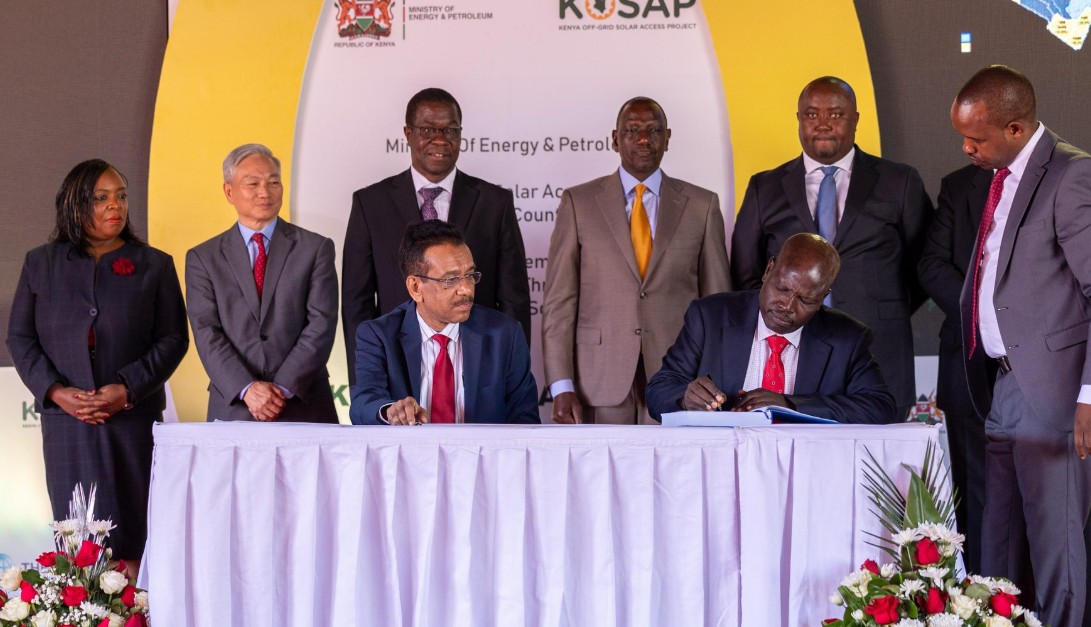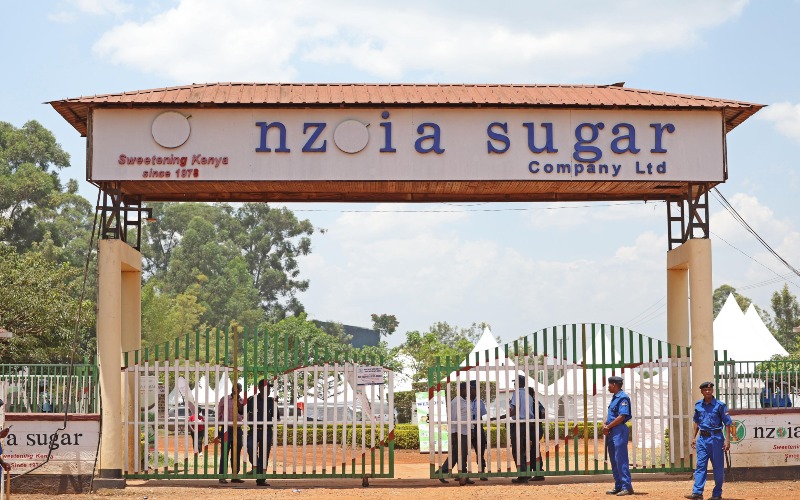Ruto orders shutdown of diesel power plant in Lodwar as state signs Sh10 billion rural electrification deal

The president noted that many rural areas remain without electricity, even as national access has grown from 29 per cent in 2013 to 75 per cent today.
President William Ruto on Wednesday announced plans to shut down a diesel power plant in Lodwar within a year.
This decision is part of a broader strategy to replace costly and polluting diesel stations with cleaner energy sources and expand the national grid.
More To Read
- National Assembly lifts seven-year ban on new power deals, paving way for local generation
- Turning food waste into energy key to climate goals, says UN report
- Why countries struggle to ditch fossil fuels despite rising costs, decades of climate deals
- Kenya beats Tanzania and Uganda in electricity and renewable energy growth
- Renewables overtake coal in global electricity generation
- Somalia unveils plan to halve imported fuel for power generation by 2028
"In Lodwar, we are taking a bold and decisive step to shut down the diesel power plant and extend the power grid to Lodwar by next year," Ruto said.
"I am looking forward to that proud moment when I switch off the diesel power plant in Lodwar for the first time," he added.
President Ruto was speaking during a contract signing ceremony in Nairobi.
The government is also preparing to install eight megawatts of solar power in Wajir County.
A recent report by Kenya Power revealed that running 30 off-grid power stations on diesel requires about 2.22 million litres of fuel per month, totalling 22.64 million litres annually at a cost of over Sh4.31 billion.
Cut energy costs
"These projects are clear statements of intent. We are reducing our dependence on costly and polluting diesel power, cutting energy costs, and reinforcing our climate commitments while enhancing access," Ruto said.
Alongside the renewable energy shift, Isiolo, Marsabit, and Mandera are among 12 counties set to benefit after the government signed a Sh10 billion deal to expand electricity access, bringing power to communities that have long remained in darkness.
The plan, as revealed by Ruto on Wednesday, which includes 113 mini-grids and solar-powered connections, aims to improve access to schools, hospitals, and administrative offices.
The mini-grids will also be installed in Turkana, Samburu, Wajir, Garissa, Tana River, Lamu, Kilifi, Kwale, and Narok.
Speaking during the contract signing, President Ruto said the initiative was part of Kenya's goal to achieve universal electricity access by 2030.
"Today is a reaffirmation of our unwavering commitment to inclusive development. Our mission is to extend modern, reliable, and affordable electricity to every home, school, and business, from the most remote villages to the busiest urban centres," he said.
Solar systems
In addition to the mini-grids, six contracts worth Sh438 million will connect 343 public health facilities, schools, and administrative offices to electricity through stand-alone solar systems.
Another 316 solar-powered borehole pumps, valued at Sh1.6 billion, are in the final stages of procurement.
The president noted that many rural areas remain without electricity, even as national access has grown from 29 per cent in 2013 to 75 per cent today.
He said solar power is the best solution for communities far from the national grid, ensuring that health services, education, and economic opportunities improve.
"With electricity in health facilities, vaccines and essential medicines will be safely stored, ensuring life-saving treatments reach those in need. With electricity in schools, our children will benefit from longer study hours, better learning environments, and greater opportunities to excel," Ruto said.
Under the Last Mile Connectivity Programme, 1.2 million customers have already been connected, with another 460,000 set to benefit by 2026.
The Rural Electrification and Renewable Energy Corporation (REREC) has also connected 63,000 out of 93,000 identified public facilities, with more projects underway.
Beyond expanding access, Ruto said the government is committed to a fully clean energy grid by 2030.
The president also urged contractors to deliver quality work on time and called on local leaders to support the projects to ensure they benefit the people.
Top Stories Today












































